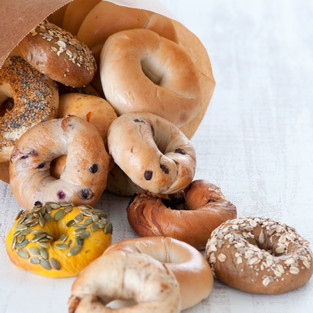Should you have a cheat meal?
- annalouisecoaching
- Aug 30, 2020
- 3 min read
Updated: Dec 1, 2023
Continuing the dieting theme in relation to our metabolism as we have focussed on the last couple of days...
Weight loss can plateau, we have been through it and the reasons why this may happen including water retention masking fat loss or you perhaps no longer being in an energy deficit (for a number of reasons, one of which being we now know could be metabolic adaptation), hormone levels etc.
There is some school of thought that diet breaks and refeeding strategies may not only be important psychologically but also physically.
This DOES NOT mean cheat meals, cheat days, cheat ANYTHING!! STOP USING THE WORD CHEAT. Cheat mindset promotes a very poor relationship with food. Cheating has dreadful connotations. If you cheat in an exam that is a bad thing. If you cheat on a partner it’s a bad thing. If you ‘cheat’ on a diet i.e. indulge from time to time it means you are human. If your diet is so restrictive that it requires a ‘cheat’ then you are doing it wrong. If this is you then you should NOT be dieting at all, you need to address your relationship with food and your mindset around it before any diet takes place. I can help you!
Refeeds and diet breaks are not random indulgences and can work far more optimally than any sort of cheat meal, in order to work they should be properly structured by a coach that understands the process of what we call De Novo Lipogenesis. This is the process by which dietary carbohydrates are converted to fat. I’ve said it before and I’ll say it again, carbs do not make you fat. ‘Too many carbs’ very rarely get stored – overeating on carbs causes your body to store more dietary fat when you are in an energy surplus and increases carbohydrate oxidation (burn) in the body.
Refeeding can lower cortisol levels in the body (our stress hormone) this can help with water retention that can accumulate and mask fat loss on the scales as a result of the stress of dieting on the body. This could potentially explain why you may sometimes weigh in lower after more relaxed days of eating during dieting phases. You know when life seems unfair when you work hard at the diet all week and weigh no less then go out for a curry on Friday and an all you can eat on Saturday and are lighter on Monday morning? This might be why! It isn’t fat, it’s lost water retention.
Refeeds can increase those spontaneous activity levels (NEAT) that we spoke about in yesterday's blog.
Carbohydrates are often depleted during a dieting phase so a refeed should include the topping up of carbohydrate stores to increase muscle glycogen and this can happen, because of the previous depletion, without gaining unwanted body fat.
The metabolic effects of longer diet breaks aren’t very well studied but do anecdotally have some positive impact on dieting be it physiologically or psychologically.
Some refeeding tips and practical take homes for you then:
· They must be structured, specific and properly programmed (this is where I come in!)
· Research tells us they should last at least three days in order to see proper physiological benefits
· They should ideally keep fat low and include adequate and optimal carbohydrate and protein sources – NOT junk food
· They should be planned around the day of or day before your heaviest training, ideally not the day after
As always, let me know if you have any questions or want me to go into anything more.
Peace and love, A x




















Comments